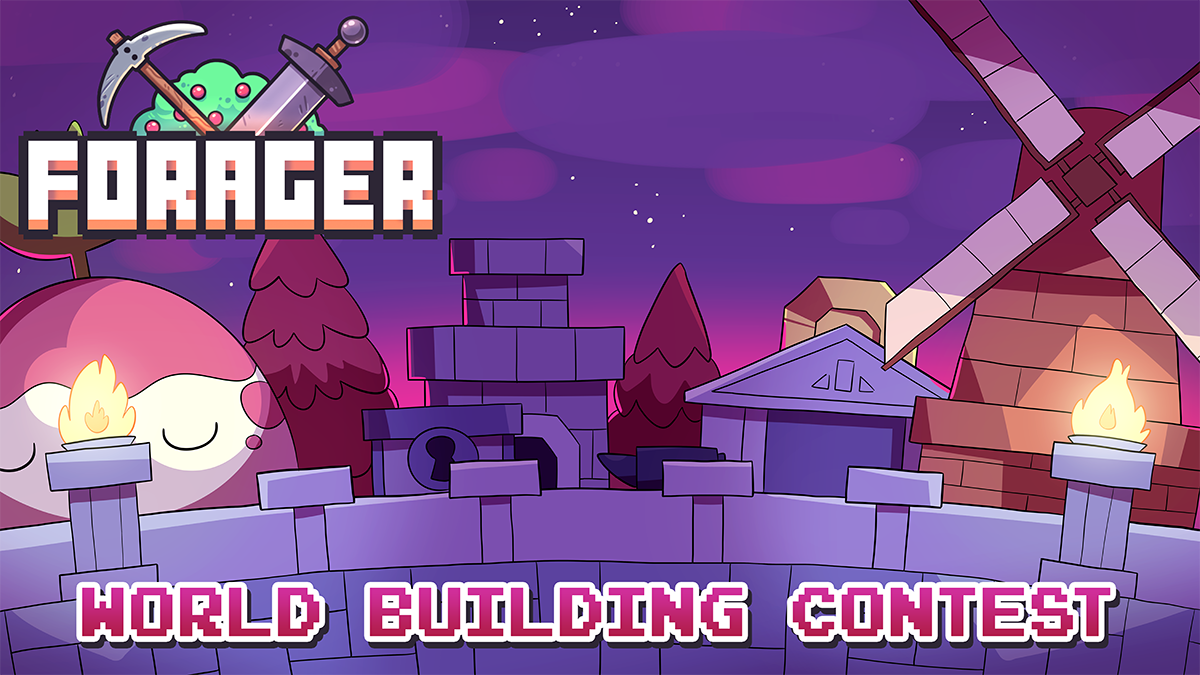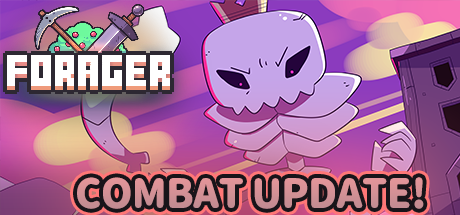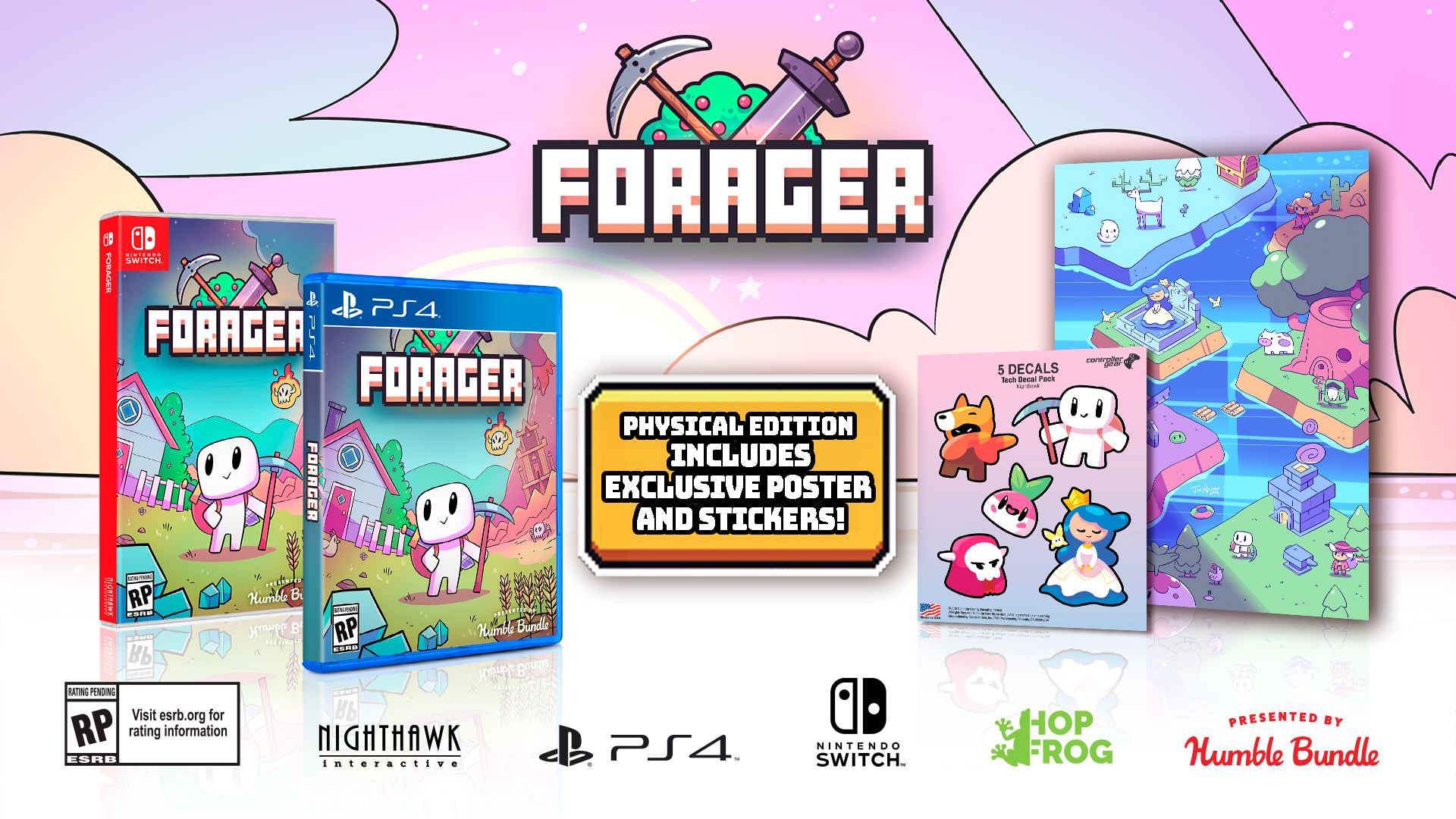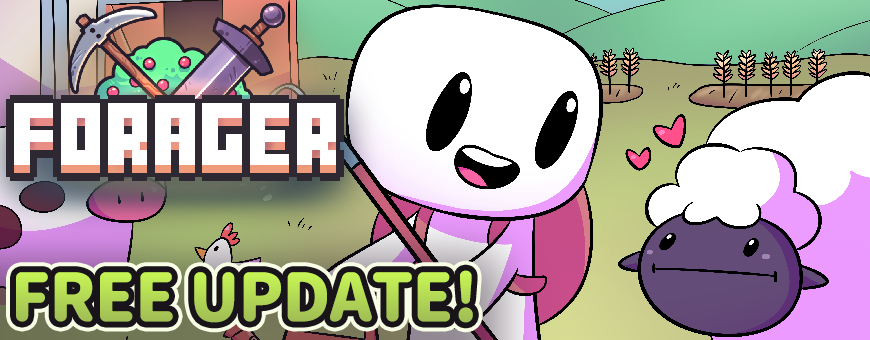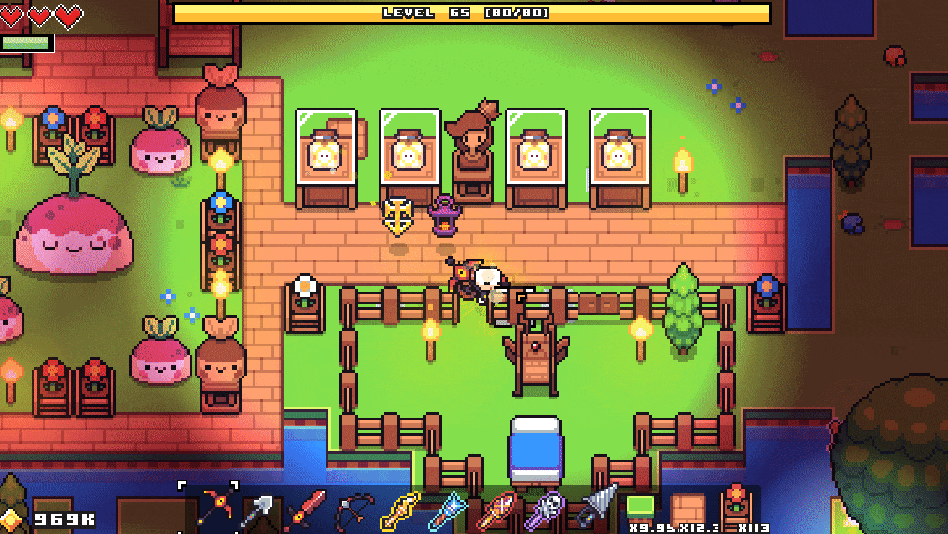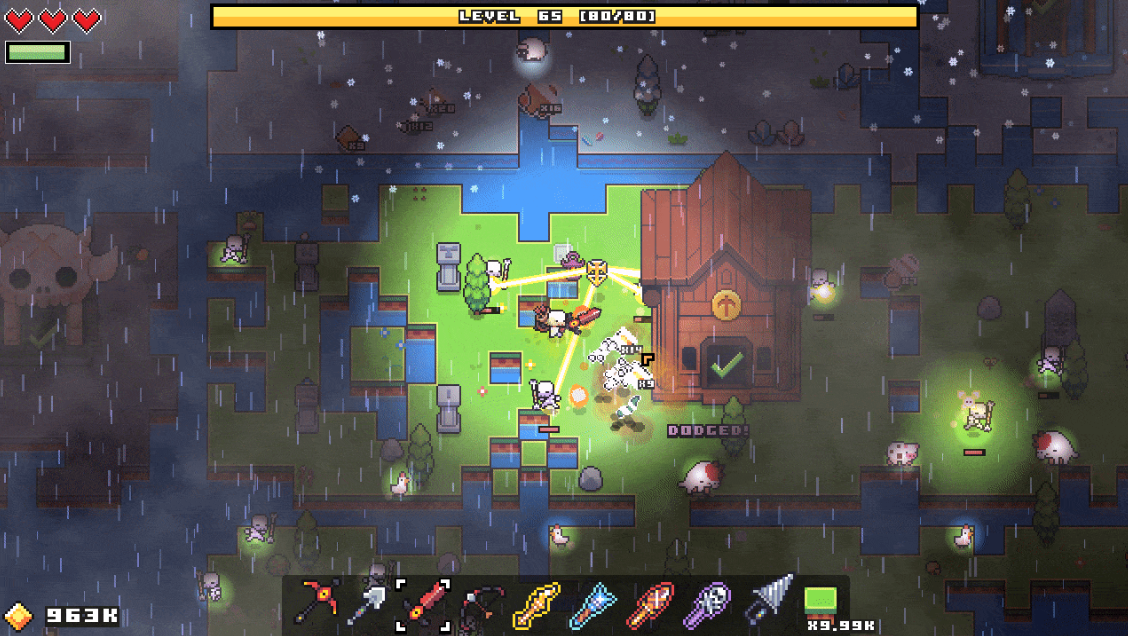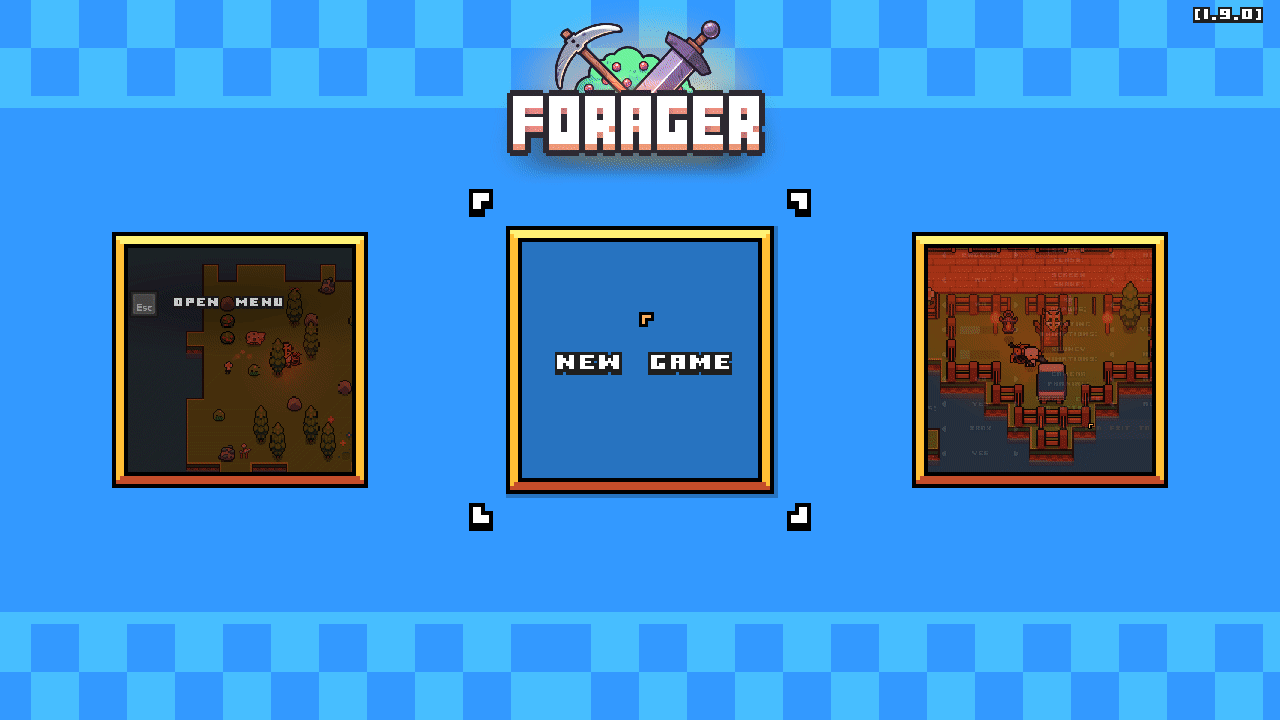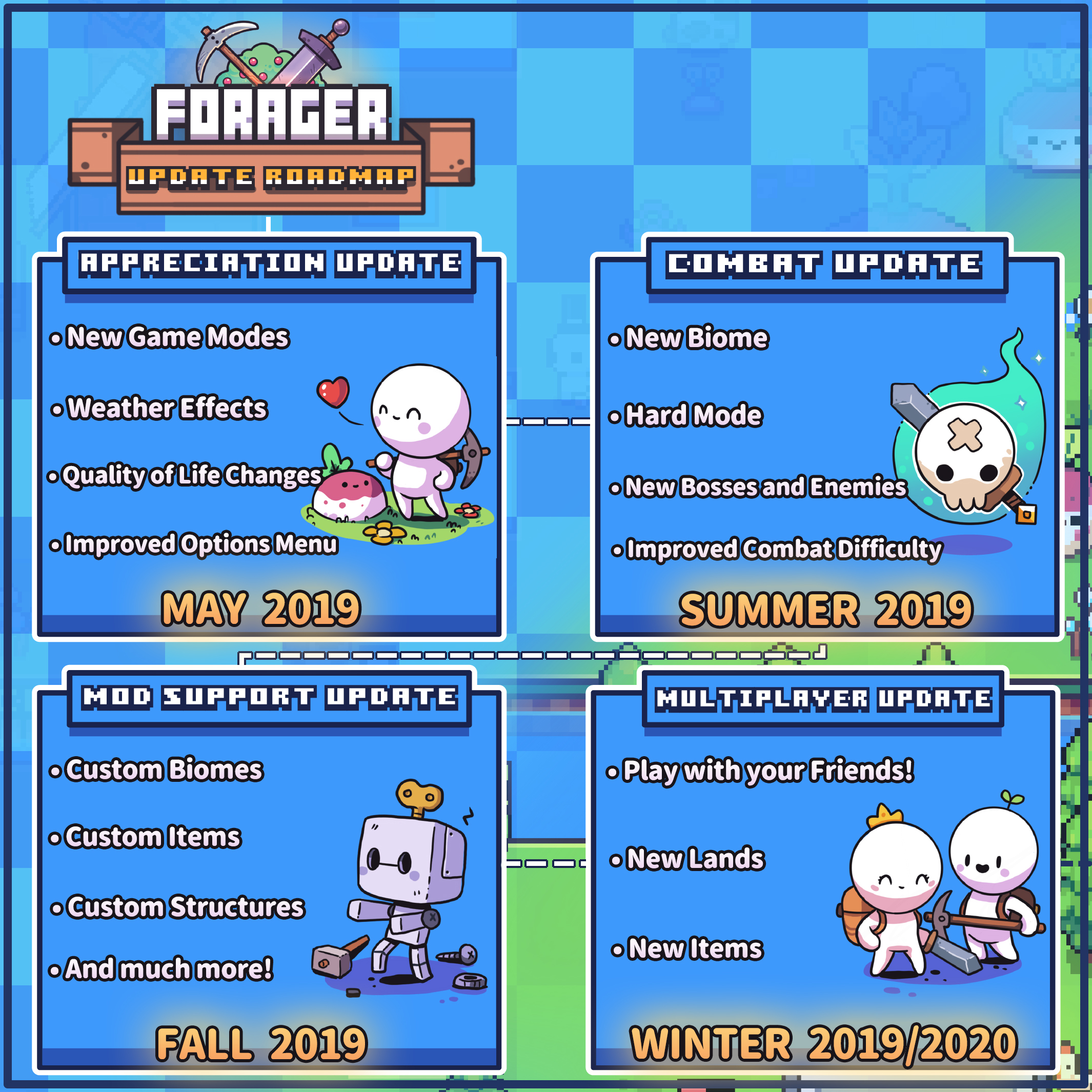What I like about Forager is that it has survival and crafting but the hunger meter's not an annoyance. There are always berry bushes nearby, and you only get hungry when you're actively mining or digging or whatever. I can alt-tab out, leaving my forge and banks running, without worrying I'll come back to find I've wasted away. It's not so much Don't Starve as Don't Worry About Starving, It's Fine Actually.
In Forager you're a little wisp of a character who hits trees and rocks and slime monsters with a pick to gather ingredients, then combines those ingredients into new stuff (buildings, wallets, a better pick that is covered in slime for some reason). If that stuff is money you can use it to buy new islands, though it's not explained who is selling them or why they only appear in the middle of the blank ocean if you hand over some coins. It's not worth thinking too hard about the backstory of Forager—the explanation for everything is "because it's a videogame".
It's like if you took the village and most of the farming out of Stardew Valley. I'm usually either on a quest—maybe collecting demon horns to help a ghost look more scary or trying to craft enough potions to fill a display in the museum—or just gathering whatever I need to buy the next upgrade or island. I run a loop of the land digging up sand and coal while keeping an eye out for rare flowers before checking my fish traps again.
When you die in Forager, maybe to a surprise slime or a spike trap, you can reload an autosave from seconds before that moment. There's no cost to death, which makes it easy to play without paying much attention. There's also no cost to waiting around for things to respawn or finish being manufactured in one of your buildings, which means the easiest way to gather the rare ingredients which become vital as you work your way up the skill tree is to just kick back for a while.
Forager is the kind of game I play without focusing on it. I don't often listen to podcasts while I play games because I like to keep my attention on one thing at a time, but Forager isn't engaging enough on its own. I've made it through a bunch of episodes of a podcast about old-school RPG modules thanks to Forager giving me something to do with my hands but not much to do with my brain.
Occasionally there's a puzzle or a dungeon with a boss in it, but the combat's very superficial. Now that I've got a bow that freezes enemies and 100 cooked meat in my inventory I'm unstoppable, and even if I die that just means a reload. The biggest challenge in Forager is conquering the feeling that I'm wasting my time playing it, that I've become hooked on another game that spits out rewards and achievements and makes numbers go up, and that I'll regretfully uninstall in another day or two.
On the other hand, I really have made a serious dent in my podcast backlog.

